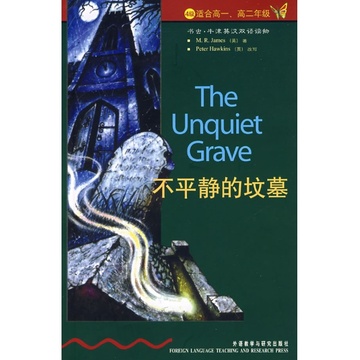On one of his walks over the heath he came upon a large white stone with a square hole in the top. No doubt it had once held a post of some kind. He looked around him at the wide, open heath and beyond that, the sea shining in the bright sunlight and decided that the stone had probably once held a sign to guide the local sailors back to their homes.
一次他在荒地里散步,发现了一块顶部有个方形洞的白色大石头。这肯定曾安插过什么标杆。他看看四周宽敞而开阔的荒地和远处明亮的阳光下闪着波光的大海,判定这块石头可能曾安插用于指引当地海员回家的标志。
In the bar that evening he spoke of the stone and his idea that it had, perhaps, once held a sign to guide sailors.
晚上在酒吧里,他谈到那块石头和他觉得那石头可能曾安插用于指引海员的标志的想法。
'Yes,'said Mr Betts, the innkeeper, 'I've heard they could see it from out at sea, but whatever was there fell down long before our time.'
“是的,”旅店老板贝茨说,“我听说他们在海上就能看到它,可插在那里的东西很久以前就倒了。”

'A good thing it did, too,'said one of the villagers.'It wasn't a lucky sign-that's what the old men used to say. Not lucky for the fishing, I mean.'
“那倒是件好事,”其中一位村民说,“那不是什么吉祥的标志,老人们过去经常这么说。我是说对捕鱼来说不吉祥。”
'Why ever not?'said Thomson.
“为什么呢?”汤姆森问进。
'Well, I never saw it myself,'answered the other.'But those old fishermen had some strange ideas, and I wouldn't be surprised if they pulled it down themselves.'It was impossible to get anything clearer than this, and people soon began to talk about something else.
“噢,我从来没有亲眼见过那东西,”那村民回答,“可那些老渔夫们的想法很怪,如果是他们亲手毁掉了它,我也不会感到奇怪我不可能找到比这更明确的答案了,人们很快就开始谈起别的事儿了。
One day Mr Thomson decided not to have a walk in the afternoon, but to continue studying. He returned to his room after an early lunch and read on until about three o'clock. Then he put down his book, rose and went out into the passage, thinking that he would have a rest for five minutes.
一天,汤姆森先生决定下午接着看书,不去散步。他早早吃完午饭回到房间里,继续看书看到大约3点。然后他放下书站起身,走出房间进了走廊,想休息5分钟。













